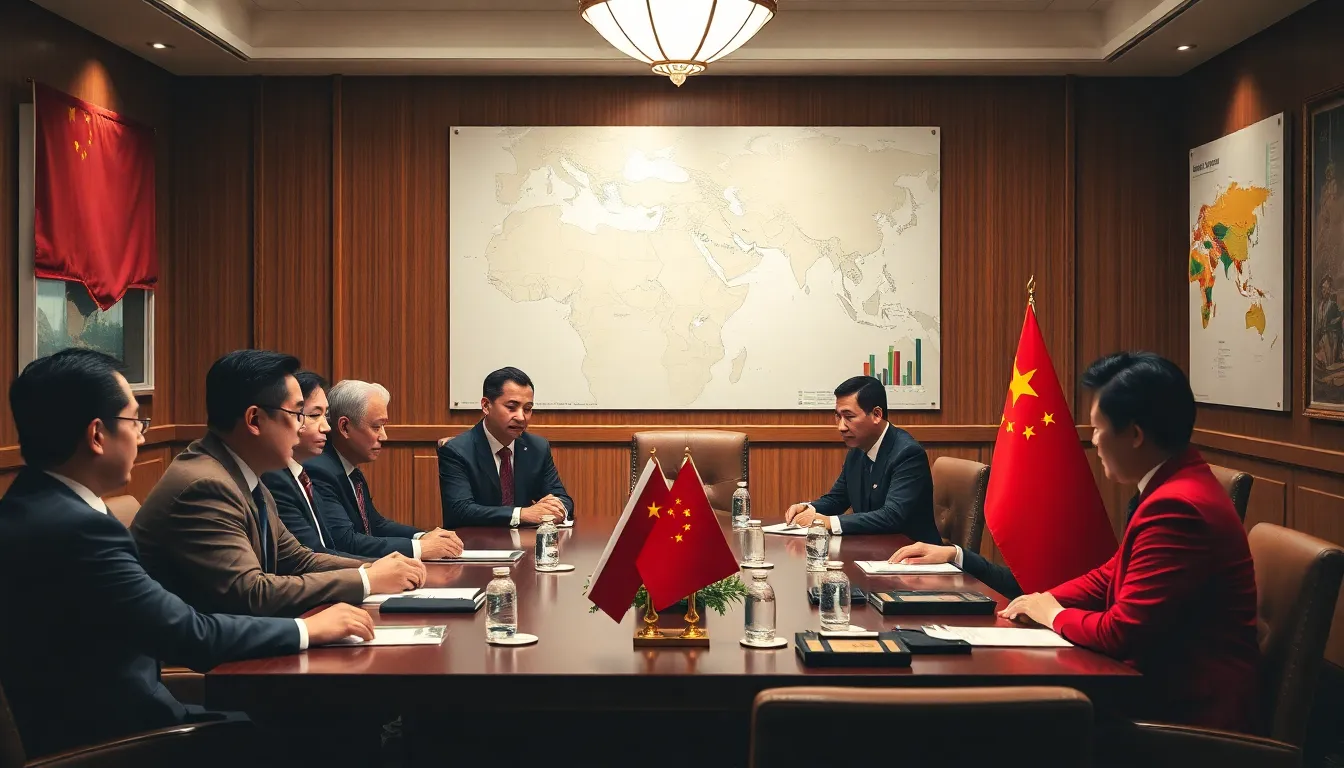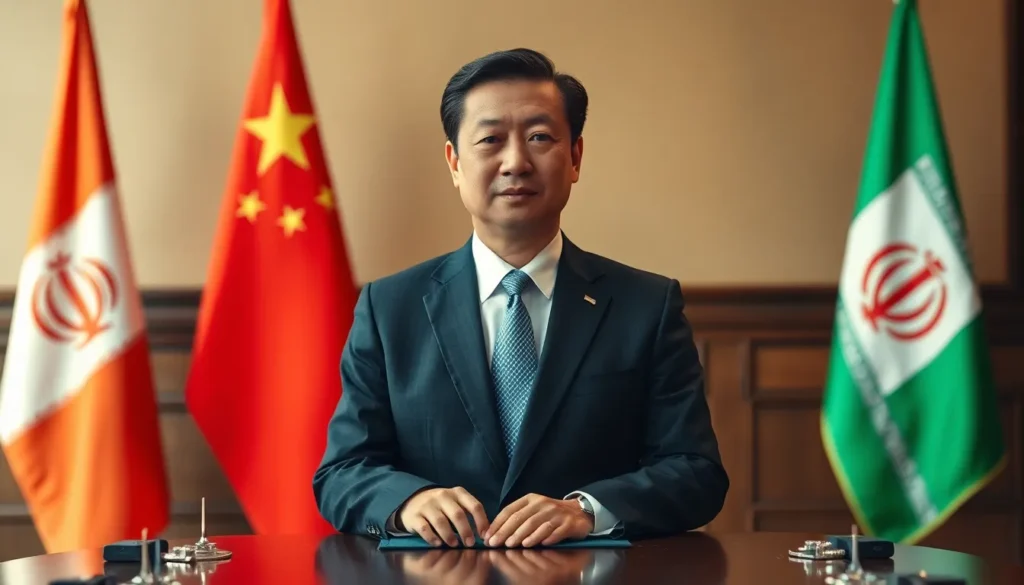Table of Contents
ToggleIn a world where geopolitics often feels like a high-stakes game of chess, the recent attack on Iran has sent ripples across the international arena. China, with its unique blend of diplomacy and strategic interests, finds itself navigating a complex web of alliances and tensions. As the dragon stirs, everyone’s wondering: how will it respond to this latest upheaval?
While many might expect a dramatic showdown, China’s response could be more nuanced than a kung fu movie plot twist. With its eyes on economic ties and regional stability, the nation’s leaders are likely weighing their options carefully. So, grab your popcorn and stay tuned; the unfolding drama promises to be as captivating as a blockbuster, but with real-world implications that could affect us all.
Overview of the Incident
The recent attack on Iran has escalated tensions in the Middle East, prompting diverse reactions from multiple global players. Iran experienced significant damage to its military infrastructure from the assault. This event has positioned Iran precariously, consequently igniting debates regarding its regional influence and alliances.
China’s response to the incident reflects its strategic imperatives in the region. Prioritizing economic interests, it seeks to maintain stable relations with Iran while navigating the complexities of international diplomacy. Analysts note that China emphasizes dialogue over confrontation.
Understanding the geopolitical landscape is crucial. China’s investments in Iran’s oil and gas sectors illustrate its commitment to economic partnership. The implications of the attack extend beyond immediate military concerns, as they involve economic considerations that impact global markets.
Iran’s position invites a careful examination of its military strategy and alliances. China’s measured response echoes its broader priorities in fostering regional stability. Collaboration with Iran aligns with China’s Belt and Road Initiative, illustrating the intertwined nature of their interests.
Observers anticipate that China’s diplomatic maneuvers will continue to focus on preserving stability and mitigating fallout. The significance of China’s ties to Iran could reshape its foreign policy strategies in response to ongoing regional developments.
China Response to Iran Attack

China’s response to the recent attack on Iran emphasizes diplomacy and economic stability. Engaging in careful dialogue, China seeks to maintain its strategic interests in the region.
Diplomatic Statements
China’s officials issued statements calling for restraint and emphasizing the need for peaceful resolution. They highlighted the importance of dialogue over military confrontation. The Chinese government noted that stability in the Middle East directly impacts regional and global security interests. Reiterating a commitment to its partnership with Iran, China expressed concern over escalating tensions, encouraging all parties to prioritize diplomatic efforts. Consistent messaging from Chinese leaders reflects a long-term strategy aimed at fostering cooperation and stability.
Economic Implications
China views its investments in Iran’s energy sector as essential to its economic strategy. With significant holdings in oil and gas projects, Beijing stands to lose from prolonged regional instability. Furthermore, disruptions can affect China’s energy supply and trade routes, making economic ties crucial. Analysts note that maintaining robust economic relations with Iran contributes to China’s Belt and Road Initiative. A stable Iran plays a vital role in securing infrastructure investments and enhancing trade connectivity. China’s engagement reflects a balancing act, where it seeks to protect its economic interests while advocating for peace in the region.
International Reactions
The international community closely observes the response to the attack on Iran. Reactions vary significantly, with nations prioritizing their strategic interests.
Global Political Landscape
Global powers exhibit diverse reactions to the situation in Iran. The United States condemned the attack and expressed concerns about Iran’s military capabilities. European nations advocate for diplomatic dialogue, emphasizing restraint. Russia, maintaining a supportive stance toward Iran, criticized foreign interference in regional affairs. This array of responses reflects the complex geopolitical landscape, where interests often clash. Countries navigate these dynamics carefully, seeking alliances that align with their security and economic goals.
Regional Security Concerns
Regional leaders are increasingly worried about the implications of the attack. Tensions escalate as neighboring countries monitor military movements and alliances. Saudi Arabia and Israel remain particularly vigilant, intensifying their defense readiness. Iran’s capability to retaliate raises alarms among its rivals, prompting calls for preemptive measures. Diplomacy exists alongside military posturing, as nations grapple with the threat of an extended conflict. The potential for further instability affects regional trade and cooperation, with stakeholders focusing on ensuring security in an unpredictable environment.
Future Implications for China-Iran Relations
China’s response to the Iran attack signifies a pivotal moment in their relationship. Diplomatic approaches will shape future interactions, emphasizing dialogue over military action. Economic ties remain central to this alliance, particularly given China’s investments in Iran’s oil and gas sectors.
Stability in the region directly impacts China’s Belt and Road Initiative, as a secure Iran facilitates infrastructure investments. Observers note that these investments are not merely financial; they represent long-term commitments essential for regional connectivity. Trade relations might deepen as both countries prioritize mutual interests amid regional tensions.
China’s call for restraint highlights its broader strategy toward peace in the Middle East. Their emphasis on dialogue signals an intent to safeguard economic interests while advocating for stability. As tensions affect neighboring countries, a cooperative China might emerge as a stabilizing force in geopolitical dynamics.
Furthermore, China’s stance contrasts with that of the United States and European nations, which exhibit more confrontational approaches. With Russia’s support for Iran, China’s measured response may help balance competing international interests. Understanding these dynamics is crucial to predicting future developments.
Regional leaders are observing closely, knowing that China’s actions influence defense postures throughout the Middle East. Iran’s increasing military capabilities may prompt changes in regional alliances, highlighting the delicate nature of security in this arena.
Ongoing diplomatic efforts by China will likely adjust in response to the evolving landscape, presenting potential opportunities for enhanced cooperation with Iran. Engaging strategically could yield benefits for both nations, reinforcing their partnership in a complex geopolitical environment.
China’s response to the attack on Iran marks a significant moment in its foreign policy. By prioritizing diplomacy and economic stability, China seeks to navigate the complex geopolitical landscape while protecting its strategic interests. The emphasis on dialogue over confrontation highlights its commitment to fostering regional cooperation and stability.
As tensions rise in the Middle East, China’s investments in Iran’s energy sector remain crucial for its economic agenda. This balancing act not only reinforces China’s role as a stabilizing force but also showcases its dedication to maintaining robust trade relations. Observers will continue to watch how China’s diplomatic efforts evolve, potentially reshaping alliances and influencing defense strategies throughout the region.




